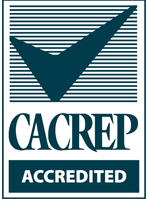Learn from home. Impact your community. Be a Counselor.
Join the #CounselingHerd – Apply for Admission Today!
Overview and Mission
Welcome to the Counseling Department at Marshall University, where your journey to becoming a counselor begins!
Since 1961, Marshall University has trained counselors from around the world. Accredited by the Council for Accreditation of Counseling and Related Educational Programs (CACREP), our mission is to prepare mental health and school counselors to serve their schools and communities as ethical, competent, and culturally sensitive practitioners.
In-Demand Specialties
The Counseling Department offers a 60-semester credit hour, CACREP-accredited, Master of Arts degree in counseling with two specialty tracks (also known as areas of emphasis): clinical mental health counseling (CMHC) and school counseling (SC). Fun fact: students that complete the school counseling track are eligible to complete the requirements to become a Certified School Counselor and Licensed Professional Counselor in West Virginia!
Additionally, the department facilitates one graduate certificate program: Violence, Loss, and Trauma (VoLT) Counseling, which is available to students inside and outside of the program.
Smooth Application Sequence
We accept applications for admission on a rolling basis for the Fall, Spring, and Summer terms.
- MA in Counseling degree
- Professional Development if you are interested in the Violence, Loss, and Trauma Counseling Certificate, if you are not enrolled in the MA in Counseling degree, general professional development, or need additional courses for your licensure requirements in any state.
Although we don’t require any testing like the GRE before admission, you will need to submit a personal statement and two recommendation forms.
Relevant and Accessible Curriculum
Our curriculum is offered 100% remotely, meaning you can access our curriculum and complete your degree from wherever you are located; there are no mandatory on-campus requirements. You can choose to stay where you are, travel the world (at least until your practicum and internship), and/or relocate to the enriching physical campuses in South Charleston, WV and Huntington, WV.
Offering a unique blend of synchronous (real-time video/virtual learning) and asynchronous (video lectures and demonstrations, engaging discussions, problem-based learning, etc.) learning experiences, our curriculum is built to prepare students to complete the requirements for licensure as a professional counselor (e.g., LPC) and certification as school counselor in WV as well as national certification as a National Certified Counselor, Certified Clinical Mental Health Counselor, and National Certified School Counselor through the National Board for Certified Counselors. Many states offer a streamlined licensure application process for graduates of CACREP-accredited programs like Marshall’s Counseling Department offers. Synchronous class times are thoughtfully scheduled during both daytime and evening hours to accommodate students navigating different life phases and commitments.
All core courses and most electives are offered three terms per year, in the Fall, Spring, and Summer semesters.
You can pick your pace through the program. On average, graduates complete the program in 6.4 terms, with some completing in as few as 18 months.
Graduates are employed in a variety of settings including primary, secondary, and post-secondary educational institutions, addiction treatment facilities, community mental health centers, private practices, local/state/federal government, and many more.
Exceptional Faculty
You will learn from well recognized faculty from around the world. In addition to engaged scholarship and service in their local communities, they find the time to serve as presidents of state and national professional associations, conduct meaningful research, obtain grants to fund the training of future counselors, publish books, win awards, and ensure that the field keeps moving forward with innovation, especially in areas related to neuroscience integration, trauma, and resilience. Check out more about our Counseling faculty.
In addition to core faculty, you will get to learn with a tremendous team of part-time faculty that are very active clinicians in communities, schools, and organizations, who will share their years of expertise with you.
Local roots, global reach!
Regardless of where you are physically located, Marshall is still your home, and you are Marshall!
Whether you visit, relocate, or remain where you are needed, we aim to create a unique virtual learning experience that amplifies professionalism, engagement, access, cultural responsiveness, empathy, and student centeredness.
Marshall is known to be “big enough to matter and small enough to care.” As one of the most affordable R2 universities, Marshall University and the Counseling Department make significant contributions to our fields while keeping the focus on elevated student experiences, engaged instruction, accessible advising, and the promise of a better future.
Are you ready to Join the #CounselingHerd?
For additional questions about the department, including inquiries about course syllabi, please contact coepd-admin@marshall.edu.
